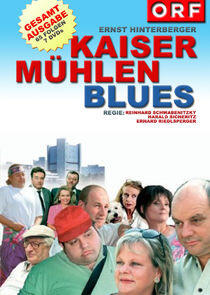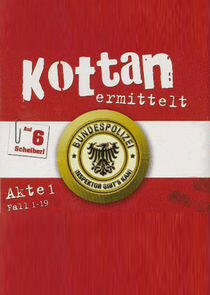
Lukas Resetarits
Resetarits was born in the Austrian state Burgenland, but his family moved to Vienna when he was at the age of four. Resetarits attended Austrian gymnasium which he finished in 1965. He studied psychology and philosophy at the University of Vienna, at the same time jobbing as rock singer, construction worker and traffic officer at the Vienna International Airport.
In 1975 he joined the cabaret group "KEIF", which consisted of Wolfgang Teuschl, Erwin Steinhauer, Alfred Rubatschek and Erich Demmer. In 1977 together with Teuschl and Steinhauer he performed the TV cabaret "Tu felix Austria".
On 26 October 1977 he premiered his first solo program "Rechts Mitte Links" in the Konzerthauskeller. In May 1978 he presented his second solo program "A Krise muaß her", and performed a second TV cabaret with Teuschl and Steinhauer, "Man wird ja noch fragen dürfen". He released his first LP vinyl record "Ein Abend mit Lukas Resetarits" ("An Evening with Lukas Resetarits") in 1979.
From 1980 to 1983 he was main actor in the Austrian TV series Kottan ermittelt, written by Helmut Zenker and directed by Peter Patzak.
Resetarits has been married since 1968 and has two daughters. Willi Resetarits (musician known as Dr. Kurt Ostbahn) and Peter Resetarits (TV host at ORF) are brothers. Karin Resetarits, a present member of the European Parliament, is his former sister-in-law.
Biography from the Wikipedia article Lukas Resetarits. Licensed under CC-BY-SA. Full list of contributors on Wikipedia.
Known For
Recently Updated Shows

General Hospital
General Hospital, which celebrated its golden anniversary on April 1, 2013, continues its tradition of passion, intrigue and adventure that takes place in the fictional town of Port Charles in upstate New York. The glamour and excitement of those who have come to find their destinies in this familiar seaport town intertwine with the lives, loves and fortunes of beloved, well-known faces. As always, love, danger and mind blowing plot twists continue to abound on General Hospital with contemporary storylines and unforgettable characters.

The Summer I Turned Pretty
Belly Conklin is about to turn 16, and she's headed to her favorite place in the world, Cousins Beach, to spend the summer with her family and the Fishers. Belly's grown up a lot over the past year, and she has a feeling that this summer is going to be different than all the summers before.

The Simpsons Specials
A series featuring characters from The Simpsons in brand new short films.

Anne Rice's Interview with the Vampire
Based on Anne Rice's iconic and bestselling novel, Anne Rice's Interview with the Vampire follows Louis de Pointe, Lestat de Lioncourt and Claudia's epic story of love, blood and the perils of immortality, as told to the journalist Daniel Molloy. Chafing at the limitations of life as a Black man in New Orleans in the early 1900s, Louis finds it impossible to resist the rakish Lestat de Lioncourt's offer of the ultimate escape: joining him as his vampire companion. But Louis's intoxicating new powers come with a violent price, and the introduction of Lestat's newest fledgling, the child vampire Claudia, soon sets them on a decades-long path of revenge and atonement.

Twisted Metal
Twisted Metal is about a motor-mouthed outsider offered a chance at a better life, but only if he can successfully deliver a mysterious package across a post-apocalyptic wasteland. With the help of a trigger-happy car thief, he faces savage marauders driving vehicles of destruction and other dangers of the open road, including a deranged clown who drives an all too familiar ice cream truck.

